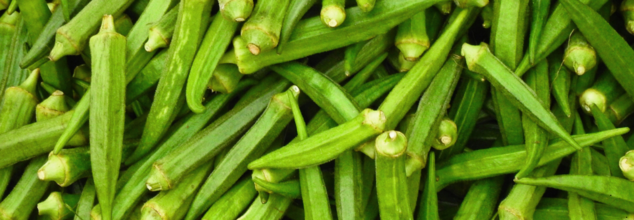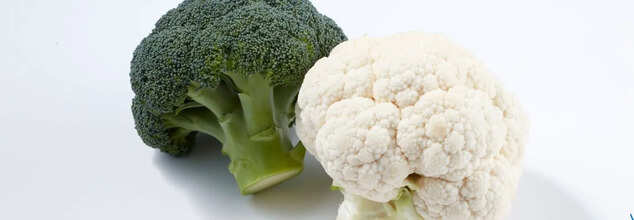- Health Conditions A-Z
- Health & Wellness
- Nutrition
- Fitness
- Health News
- Ayurveda
- Videos
- Medicine A-Z
- Parenting
- Web Stories

Lady finger in monsoon (Credit-Canva)
Okra For Monsoon Health: Nutritional Powerhouse For Monsoon Wellness
The monsoon season brings cooler weather, but also the risk of catching a cold or getting sick. Fortunately, a delicious and readily available veggie can be your ally in staying healthy - the humble okra, also known as lady's fingers! A staple in many Indian households, okra (or bhindi as it's called in Hindi) is incredibly versatile. You can enjoy it in stews with tomatoes, potatoes, and onions, alongside rotis or rice. It can also be simply boiled or fried for a quick side dish. Beyond its culinary appeal, okra offers a wealth of health benefits. Packed with essential nutrients, it is a nutritious addition to any diet. In this article, we will delve into the various ways okra can enhance your health and explore some delicious recipes to incorporate it into your meals.
Benefit Of Okra During Monsoon
Okra can be very important during monsoon, here are some benefits-
Increased Metabolic Rate
Circuit training elevates your heart rate and metabolic rate throughout the workout, leading to a significant calorie burn. This elevated metabolism can continue for hours after the workout, even when you're resting, resulting in increased fat loss and improved overall fitness.
Full-Body Workout
Circuit training typically involves exercises that target multiple muscle groups simultaneously, making it a highly efficient workout. This full-body approach helps you burn more calories and build muscle more effectively than traditional workouts that focus on individual muscle groups.
Improved Cardiovascular Health
The high-intensity nature of circuit training improves cardiovascular health by strengthening the heart and increasing endurance. This can reduce your risk of heart disease, stroke, and other cardiovascular problems.
Enhanced Strength and Power
The resistance training aspect of circuit training helps build muscle strength and power. This increased muscle mass can lead to increased calorie burn, even at rest, making it easier to lose weight and maintain a healthy body composition.
Increased Functional Fitness
Circuit training improves functional fitness, making it easier to perform everyday tasks and activities. This can help you feel more confident and independent, as well as reduce your risk of injuries.
Reduced Body Fat
The combination of high-intensity exercise and increased muscle mass can lead to reduced body fat. This can help you achieve a leaner and more toned physique, improve your body image, and boost your self-esteem.
Supports Healthy Blood Sugar Levels
Okra is a rich source of soluble fiber, which has been shown to help regulate blood sugar levels. The fiber in okra slows down the absorption of glucose from the digestive tract, preventing spikes in blood sugar levels. Additionally, okra contains antioxidants that can help improve insulin sensitivity, making it easier for the body to use glucose for energy.
Promotes Healthy Digestion
Okra contains mucilage, a slimy substance that can help soothe the digestive tract. Mucilage can coat the lining of the stomach and intestines, protecting them from irritation and inflammation. This can help alleviate symptoms of digestive disorders such as heartburn, constipation, and diarrhea. Additionally, the fiber in okra can help promote regular bowel movements, preventing constipation and bloating.

Credit: Canva
Does Kombucha Help You Poop? Here's What Health Experts Say
Kombucha, the fizzy fermented tea drink that's taken health circles by storm, may do more than just quench your thirst. Rich in probiotics and naturally hydrating, kombucha could play a helpful role in keeping your digestive system running smoothly—and yes, possibly even helping you poop.
But How Does Kombucha Aid Digestion?
Kombucha is made by fermenting sweetened green tea with a symbiotic culture of bacteria and yeast (SCOBY). This fermentation process creates a drink loaded with probiotics—live microorganisms that are known to support gut health. Research shows that probiotics may help reduce gut inflammation, improve nutrient absorption, and ease symptoms of digestive issues like diarrhoea and bloating. They’ve also been linked to improvements in symptoms of irritable bowel syndrome (IBS), a condition often marked by constipation, abdominal pain, and irregular bowel movements.
While most of the studies focus on probiotic supplements rather than probiotic-rich foods like kombucha, it’s still considered a potentially valuable addition to a gut-friendly diet. However, since the probiotic content in kombucha varies from brand to brand, the exact health benefits may differ with each bottle.
Probiotics In Kombucha Improve Bowel Movement
Though no studies have directly investigated the link between kombucha and constipation relief, several reviews have found that probiotics in general can improve bowel regularity. For instance, one study found that probiotics reduced constipation in older adults by up to 40%. Others noted that probiotics improved stool frequency, consistency, and overall digestive transit time.
Given that kombucha is a natural source of probiotics, it may help promote regular bowel movements indirectly. However, more specific research is needed to establish a clear connection between kombucha and constipation relief.
Hydration Matters
Another reason kombucha might support digestion is that it's a fluid—and staying hydrated is key to preventing constipation. Water and other hydrating beverages help move food through the digestive system and soften stools, making them easier to pass. According to the U.S. National Academy of Medicine, men should aim for about 3.7 litres (125 ounces) of fluid per day, while women should aim for 2.7 litres (91 ounces). While kombucha shouldn’t be your sole source of hydration, it can contribute to your daily fluid intake and support overall digestive health.
A Word Of Caution
Not all kombucha is created equal. Some versions contain added sugars, fruit juices, or flavourings that can alter their nutritional profile. Additionally, because fermentation can produce trace amounts of alcohol, those avoiding alcohol should read product labels carefully.
Kombucha may not work like a laxative, but it supports digestive health in multiple ways. Its probiotic content may help regulate bowel movements, while its fluid content aids in stool consistency and hydration. Whether or not it helps you poop depends on individual factors such as your overall diet, health status, and how much you drink.
In moderation, kombucha can be a gut-friendly addition to a healthy, balanced lifestyle. Have you tried kombucha as part of your digestive health routine?

Credit: Canva
20 Best Foods For People With Kidney Disease
Kidney disease affects millions globally, often silently impairing the body’s ability to filter waste and balance nutrients. Diet plays a key role in managing the condition, especially since failing kidneys struggle to process sodium, potassium, phosphorus, and, at times, protein. Choosing kidney-friendly foods can help slow disease progression and improve quality of life. While individual dietary needs may vary by stage and severity of the disease, here are 20 of the best foods known to support kidney health.
1. Cauliflower
This cruciferous vegetable is high in fiber and anti-inflammatory compounds, yet low in potassium and phosphorus. Mashed cauliflower is a great low-potassium substitute for mashed potatoes.
2. Blueberries
Packed with antioxidants called anthocyanins, blueberries help protect against heart disease and are gentle on the kidneys due to their low sodium, potassium, and phosphorus content.
3. Sea Bass
Though high in protein, sea bass contains healthy omega-3 fatty acids that reduce inflammation. However, portion control is vital.
4. Red Grapes
Loaded with flavonoids, red grapes reduce inflammation and support heart health. They're low in potassium and phosphorus, making them ideal for snacking.
5. Egg Whites
A high-quality, low-phosphorus protein source, egg whites are a better option than whole eggs for people on a renal diet.
6. Garlic
With potent anti-inflammatory properties and rich flavor, garlic helps reduce reliance on salt and enhances immune function.
7. Buckwheat
This gluten-free grain is rich in nutrients like iron and magnesium while being low in potassium, making it a kidney-friendly choice.
8. Olive Oil
Free of phosphorus and rich in heart-healthy monounsaturated fats, olive oil supports both kidney and cardiovascular health.
9. Bulgur
Bulgur is a whole grain alternative lower in phosphorus and potassium than brown rice or quinoa and provides beneficial fiber.
10. Cabbage
Available in many varieties, cabbage is rich in vitamins and antioxidants that may reduce kidney and liver damage risk.
11. Skinless Chicken
Lean and high in protein, skinless chicken is suitable in limited quantities. Choose fresh over processed to avoid excess sodium.
12. Bell Peppers
Low in potassium and high in vitamins A and C, bell peppers support immune health without stressing the kidneys.
13. Onions
Flavorful and full of antioxidants, onions serve as a sodium-free base for many dishes, aiding digestion and kidney health.
14. Arugula
A low-potassium green, arugula is nutrient-dense and safe for kidney-friendly salads, with added bone benefits from vitamin K.
15. Macadamia Nuts
Lower in phosphorus than most nuts, macadamias are a smart, crunchy snack in moderation for those on a renal diet.
16. Radishes
Crunchy and spicy, radishes are extremely low in potassium and phosphorus, making them a refreshing addition to meals.
17. Turnips
A great alternative to potatoes, turnips offer fiber and vitamin C with relatively low mineral content.
18. Pineapple
Lower in potassium than other tropical fruits, pineapple provides fiber and bromelain, an enzyme that may reduce inflammation.
19. Cranberries
Helpful in preventing urinary tract infections, cranberries are also low in kidney-stressing minerals and can be enjoyed fresh or dried.
20. Shiitake Mushrooms
These flavorful fungi are a good plant-based protein source, rich in B vitamins and lower in potassium and phosphorus than other mushrooms.

Credits: Canva
Choline Deficiency Could Lead To Cognitive Decline
Choline is often known as "brain food". It is a nutrient related to B vitamins that play an important role in body and brain functions. However, the concerning part is about 90% of people do not consume enough of it.
It is essential for producing acetylcholine, which is a neurotransmitter that helps neurons or the nerve cells to build connections and communicate effectively. As people age, acetylcholine levels naturally decline. When these levels are lower than usual, it can cause conditions like Alzheimer's disease. Research also suggests that low levels of acetylcholine can impair memory, focus, and the ability to recall words.
As per a 2021 study published in the journal Behavioral Neurology, individuals who consumed between 188 to 400 mg of choline on a daily basis had a lower risk of cognitive decline. They had at least 40% less risk of experiencing cognitive decline compared to those with lower intakes of choline.
What Are The Different Kinds Of Choline? How They Benefit?
There are various forms of choline some benefit more than others.
For instance phosphatidylcholine is a type of choline that is found in eggs and is linked with lower dementia risk. A 2019 study observed that every additional 50 mg per day of phosphatidylcholine intake was associated with a 10 percent decrease in the likelihood of developing dementia. Since a large egg contains around 169 mg of choline, most of which is phosphatidylcholine, incorporating eggs into the diet can be particularly effective.
There are other emerging research in this field that suggests that increasing choline intake after Alzheimer's diagnosis could also slow the progression of the disease. It could also provide potential benefits even in the later stages of cognitive decline.
Are There Other Health Benefits Of Choline?
Other than helping the brain stay sharp, choline can also help maintain healthy liver function. It can play an important role for fat and glucose metabolism and reduce the risk of metabolic diseases like fatty liver disease and Type 2 diabetes.
It could also contribute to cardiovascular health by controlling inflammation, which is one of the leading reasons for heart diseases, including stroke.
How Much Choline In Okay to Consume?
Although the body makes a small amount of choline naturally, it is not sufficient to meet daily needs. The recommended Daily Value (DV) for choline is 550 mg. This amount typically needs to be obtained through diet or supplements.
While it’s possible to get enough choline through food, certain groups, such as older adults or those following a plant-based diet, may find it challenging. In such cases, supplements may be considered. However, not all multivitamins provide sufficient choline, so selecting a specific choline supplement — ideally around 300 mg — could be necessary. Consulting with a healthcare provider before starting supplements is always advisable.
What Foods Contain Choline?
There are many common food that contains choline, some of them include:
- Egg, 1 large (169 mg)
- Edamame, 1 cup (87 mg)
- Turkey breast, 3.5 oz. (84 mg)
- Chicken thighs, 3.5 oz. (75 mg)
- Salmon, 3.5 oz. (79 mg)
- Broccoli or Brussels sprouts, 1 cup (63 mg)
- Red potato, 1 large (57 mg)
- Kidney beans, ½ cup (45 mg)
- 2% milk, 1 cup (45 mg)
- Cottage cheese, 1 cup (37 mg)
- Plain low-fat yogurt, 1 cup (35 mg)
© 2024 Bennett, Coleman & Company Limited

